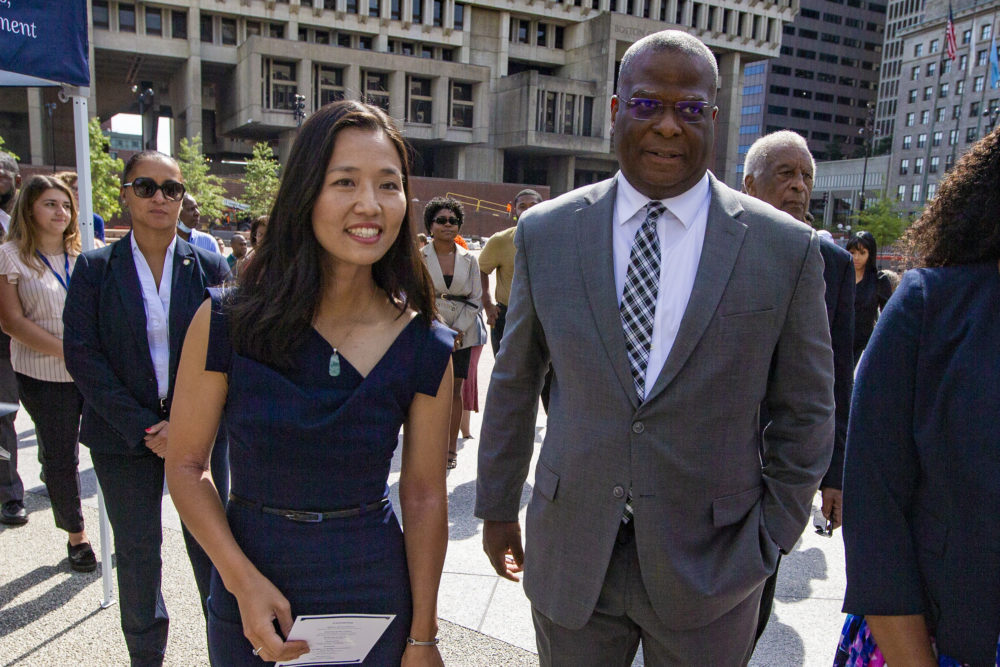Advocates call for re-commitment to Boston police reform after fatal beating of Tyre Nichols

Mayor Michelle Wu and Michael Cox arrive at the ceremony to swear him in as the new Police Commissioner of the City of Boston on City Hall Plaza. (Jesse Costa/WBUR)
Boston officials gathered in Chinatown Sunday morning to celebrate Lunar New Year – but many were thinking about Memphis, after the release of the police video showing the brutal beating death of 29-year-old Tyre Nichols at the hands of five police officers.
Police Commissioner Michael Cox told reporters he was grappling with what he saw in the video.
“I can’t put into words,” he said, before trailing off. “I won’t even try, that’s how bad it is.”
“It shows how much work we have to do as a country, and as a society,” said Mayor Michelle Wu.
But Wu said she’s confident in the police reform process underway in the city.
“I feel so lucky that the standards that we have here, the level of professionalism and accountability and community-connected focus, puts us at a different starting point than many places around the country,” she said.
Boston initiated a slate of reforms after the police killing of George Floyd in 2020.
The city launched a new online dashboard tracking information such as how often police use their firearms and when they stop to interrogate people. It also expanded its body camera program and created the Office of Police Accountability and Transparency.
But a year into its existence, that office had only reviewed a handful of cases.
“You know, it takes a minute to get the engines fired up, so I understand that, but I am still dismayed at what I would say is kind of an overall, lackluster presence,” said Jamarhl Crawford, who served on the Boston Police Reform Task Force.
Crawford said Boston also needs to reckon with the cases of people who were killed by police here. “We need a deep dive, a study and research – and an admission and apology – for what has already occurred in Boston,” he said.
Across town at the 12th Baptist Church in Roxbury on Sunday, the Reverend Jeffrey Brown told the church’s congregation that Nichols’ death made him feel hopeless.
“Despite the promises of reform… despite the promises of change, at any one point of time, a Black man can be in a car, get stopped by police and could die,” he said in his sermon.
Rev. Brown is a long-time community organizer and was part of the dramatic decrease in youth violence in the 1990’s. He urged the congregation to draw strength from faith.
“That when evil comes our way, that we don’t bow to the evil, that we don’t acquiesce to the evil, that we got to stand up and say, for God, I live. And for God, I will die,” he said.
Brown said there were protests and promises after the death of George Floyd – it’s time those promises are kept.
This story was originally published by WBUR, a partner of the New England News Collaborative.
